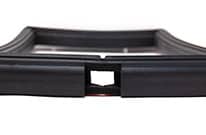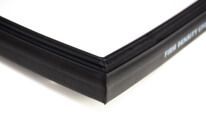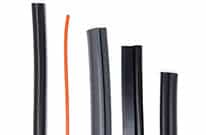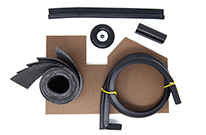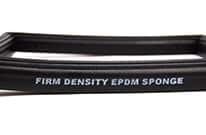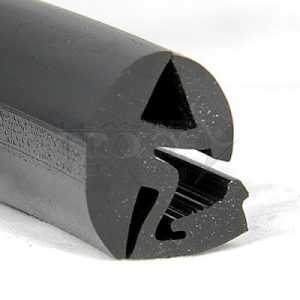 Window channels are rubber gaskets that hold window glass in place and help to secure window frames. They also eliminate rattling and provide protection against wind, water, dust, and debris. Applications for window channels include mobile equipment, defense, medical and health, stainless steel and food equipment, infrastructure, and aerospace.
Window channels are rubber gaskets that hold window glass in place and help to secure window frames. They also eliminate rattling and provide protection against wind, water, dust, and debris. Applications for window channels include mobile equipment, defense, medical and health, stainless steel and food equipment, infrastructure, and aerospace.
For engineers and product designers, window channel selection begins by understanding the types of products that are available. It’s also important to define your application requirements and to compare product specifications. In this article from Elasto Proxy, you’ll learn how to select window channels that provide the sealing and insulation you need.
Window Channel Types
Most window channels are extruded, a manufacturing process that supports smooth finishes and complex cross-sections. These rubber products are either beaded or unbeaded. Beaded channels contain stainless steel beads that support installation without stretching or pulling. Unbeaded channels are flexible and can be cut to fit tight radiuses. Often, these window gaskets have coated linings for ease-of-installation.
Window channels can feature a locking or self-locking construction. Locking window channels are two-piece gaskets that lock into position with a lock strip or insert key. Self-locking channels are one-piece gaskets that do not require these attachment mechanisms. A third type of product, glazing channels, are installed using hand tools and lubrication. C-channels and U-channels are also available.
Elasto Proxy offers a wide selection of locking channels, self-locking channels, glazing channels, C-channels, and U-channels. For examples our standard products, download the Extruded Rubber Products Catalog. Elasto Proxy can also custom-fabricate lengths of extruded rubber to create custom sealing and insulation solutions.
Application Requirements and Product Specifications
By defining your application requirements, you can refine your window channel search to extrusions that meet your specific needs. Elasto Proxy can help you with this process and will do so by asking you a series of questions. Here are some typical ones from our solutions providers:
- Do you need window rubber that’s hard or soft, rigid or flexible?
- Do you need window channels that resist water or chemicals?
- What are the minimum and minimum service temperatures for the application environment?
- Will you install windows channels on an assembly line with tools, or out in the field?
It’s extremely important to determine the minimum bend radius that’s needed in the corners. Otherwise, problems such as kinking or bending may occur. For most applications, EPDM rubber in durometers from 50 to 80 (Shore A) is used. To ensure proper installation, engineers and product designers also need to specify the window channel dimensions and weight.
Depending on the industry, your window channels may need to meet military, automotive, mass transit, or food safety requirements. For example, window rubber that’s used on trains may need to comply with flame, smoke, and toxicity (FST) requirements such as SMP 800-C. There isn’t just one FST standard, however, so it’s important to choose the right rubber for your application.
Window Channels from Elasto Proxy
Elasto Proxy can help you with material selection. We can ship 50-ft. lengths of standard window channels on demand, or in response to your sales forecasts. For custom-fabricated products, we use water jet cutting technology to make fine, fast cuts without tooling charges. The custom gaskets you receive arrive ready-to-install and can save your company time and money.
Do you need window channels for mobile equipment, defense, medical and health, stainless steel and food equipment, infrastructure, or aerospace applications? Download our Extruded Rubber Products Catalog to see some of our standard window channels. Then contact us to place an order or to learn more about our custom-fabricated solutions.






